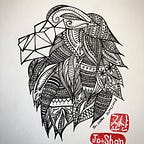12 Japanese travel phrases to know for your next trip!
Travel is one of the biggest motivations or inspirations to learn foreign languages. However, when do you usually learn the language of your travel destination? Before, during, or after? Despite some reports show that people are more likely to be inspired to learn a language AFTER traveling; the answer is most probably BEFORE, isn’t that right?
Even if you’re not the biggest fan of language learning, you would want to know or learn some survival phrases just in case. You might argue that English is so commonly used nowadays and English language service is available at most tourist sites. It is true, but there might still be situations where English is not an option. Based on my personal experience, for example, if you visit a non-touristy place or a small local restaurant (where the most authentic dishes usually are), you may find English language service to be fairly limited. You won’t have an issue; it might just take longer for the communication to be done, but it’s still advantageous if you know a few of the important phrases.
After our recent trip to Japan, although my partner and I could use English in most cases, we found that knowing Japanese has definitely made our traveling life easier. One of the occasions is when we ate at an old Unagi specialty restaurant in Kawagoe — an Edo-period castle town. There was no English menus nor photos of the dishes. Note that it was the best Unagi we have ever had.
That being said, you don’t need to pass Level 3 in JLPT (Japanese Language Proficiency Test) before your next trip to Japan. It would come in handy if you have some practical words and expressions saved in your mind.
I’ve summed up several useful Japanese phrases that travellers might use or hear every day.
- すみません (sumimasen) — excuse me or I’m sorry
2. 〜を ください (〜wo kudasai)— Please give me 〜. or [〜], please.
3. お願いします (onegaishimasu) — Please.
4. 〜を お願いします(〜wo onegaishimasu) — It’s the honorific / more polite form of 〜を ください.
***In some specific cases, only 〜を お願いします is used. Learn more with Eggbun here.
5. *何名様ですか (nan mei sama desuka) — How many (people)?
6. *ご注文はお決まりですか (go chuumon wa okimari desu ka?) — Are you ready to order?
*you will hear these expressions at restaurants.
7. ごちそうさまでした(gochisousama-deshita) — (used after meals) “It was delicious.” or “Thanks for the meal!”
8. お勘定をお願いします (okanjou wo onegaishimasu) — Equivalent to “Can I have the bill, please?” (at the restaurant)
9. ありがとう (arigatou) — Thank you.
**Honorific: ありがとう ございます (arigatou gozaimasu)
10. いくらですか?(ikura desuka) — How much is it?
11. 袋大丈夫です (fukuro daijoubu desu) — When you go eco-friendly and say no to plastic bags, you can always use this phrase. It means you don’t need a bag.
12. 〜 は どこですか ? (〜wa doko desuka?) — “Where is 〜?”
Now you feel like you can speak Japanese? Yes, you can and you will. Learn these phrases before your next trip, save them on your phone and share with a friend who may need the list.
Learn more useful Japanese phrases and expressions at Eggbun Education with the cute chatbot tutor- Lanny.
